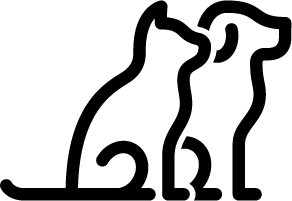Just like humans, dogs can suffer from acid reflux and this can greatly affect their quality of life. Acid reflux is a gastrointestinal condition that can develop when the sphincter muscles are weak or damaged. These muscles are located where the stomach and oesophagus join and their role is to prevent gastrointestinal juices from the stomach from flowing into the oesophagus. When the sphincter muscles aren't working well, the acidic gastrointestinal juices can damage the oesophageal tissue and localised inflammation can develop. Some puppies are born with underdeveloped sphincter muscles, and some dogs will develop a hiatal hernia that can cause acid reflux, but it's not always possible to pinpoint why some dogs develop the condition.
Symptoms Of Acid Reflux
Dogs with acid reflux tend to regurgitate food and you will notice an increase in saliva production. The burning sensation they experience along the oesophagus can cause dogs to refuse food, which can lead to weight loss. Signs your dog is experiencing pain from the backflow of gastrointestinal juices include becoming withdrawn, pawing at their mouth and whining.
Diagnosing And Treating Acid Reflux
Your vet will diagnose acid reflux by taking details of your dog's symptoms and carrying out an oesophagostomy. This is a minimally invasive procedure that involves inserting a thin tube with a tiny camera on the end of it into your dog's throat and down their oesophagus. This procedure allows your vet to determine whether the tissues of the oesophagus are damaged. Your dog will likely require a general anaesthetic for this procedure.
Acid reflux is typically treated with both medication and dietary changes. Fat and protein can cause an increase in gastrointestinal secretions in order to digest these foods efficiently, so your vet may recommend a low-fat, low-protein diet to reduce the number of gastrointestinal juices being produced. Your dog's diet will still need to be balanced for optimal health, so your vet will work with you to ensure they are getting the nutrients they need. Pro-kinetic drugs can increase the speed at which food moves through the stomach. These drugs can be helpful, as the stomach produces fewer digestive juices when food moves through it quickly, which means it's less likely there will be a backflow of these juices into the oesophagus. Treatment should rectify or significantly decrease your dog's symptoms relatively quickly, and your vet will follow up with your dog to ensure their treatment is working as expected.
If you suspect your dog is experiencing acid reflux, have them examined by your vet to prevent unnecessary discomfort.
For more information about veterinary services, contact a local professional.
 If you have never owned a pet before, you may be pretty excited about buying your first little animal friend. However, you probably have some questions. We hope that this blog will provide you with some of the answers you are looking for. We don't claim to be experts when it comes to this subject, we have done lots of research into this subject. Here, you will find info about animal welfare, bedding, pet food products, and vaccinations. We hope you enjoy reading the things we have posted here. Check back soon to read all of our latest updates. Thank you!
If you have never owned a pet before, you may be pretty excited about buying your first little animal friend. However, you probably have some questions. We hope that this blog will provide you with some of the answers you are looking for. We don't claim to be experts when it comes to this subject, we have done lots of research into this subject. Here, you will find info about animal welfare, bedding, pet food products, and vaccinations. We hope you enjoy reading the things we have posted here. Check back soon to read all of our latest updates. Thank you!